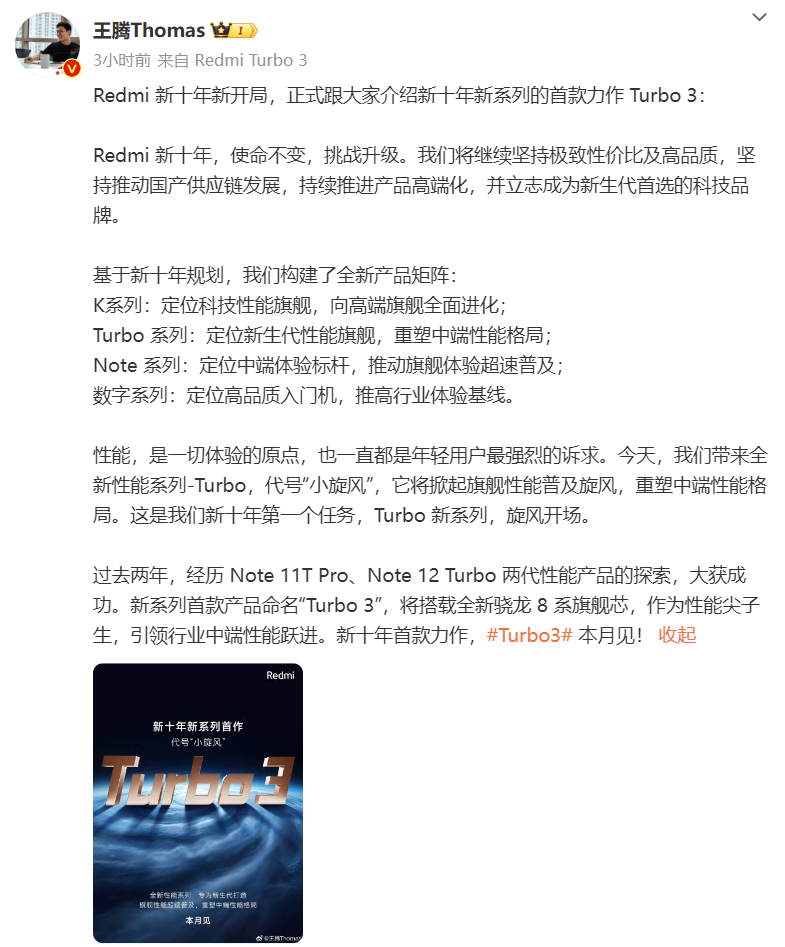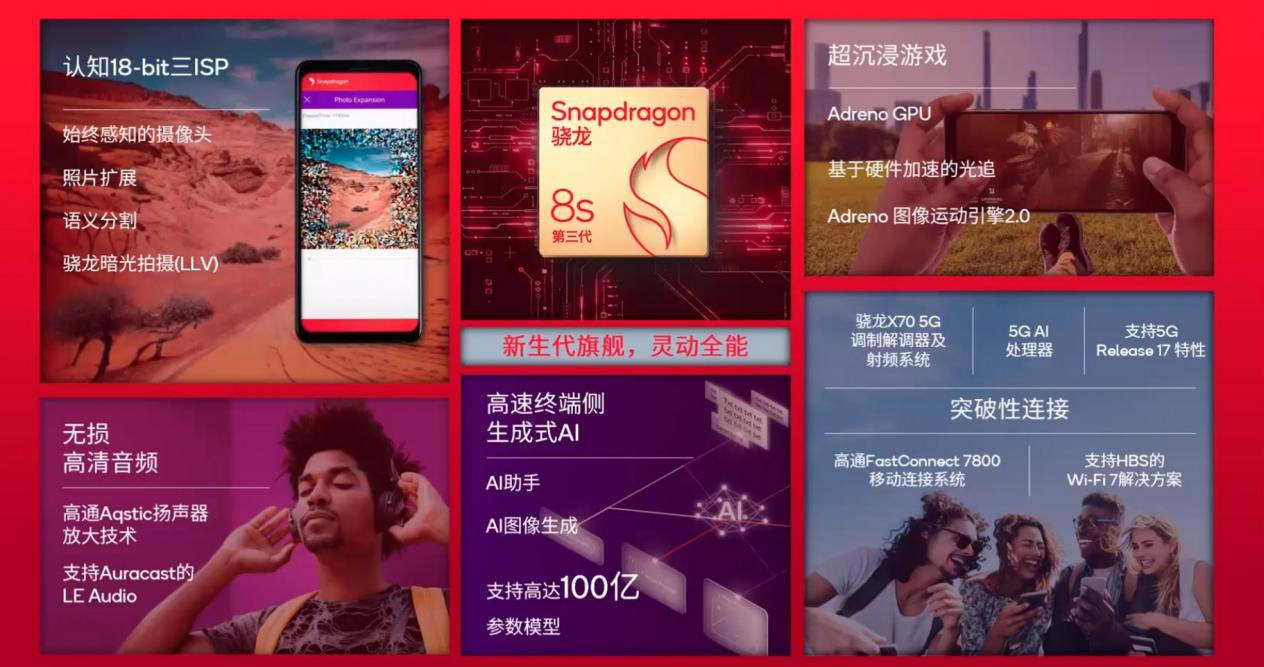
According to news on April 1, Xiaomi officially announced today that Turbo 3, the first product of Redmi’s new series in the new decade, will be released this month, and the new phone is codenamed “Little Tornado”. Subsequently, Wang Teng, general manager of the Redmi brand, also announced the product positioning for the new decade.
K series: Positioning as a technology and performance flagship, fully evolving into a high-end flagship; Turbo series: Positioning as a new generation performance flagship, reshaping the mid-range performance landscape; Note series: Positioning as a mid-range experience benchmark, promoting flagship Experience ultra-fast popularization; digital series: positioning high-quality entry-level phones to push up the industry experience baseline. Wang Teng said: "In the new decade of Redmi, the mission remains unchanged but the challenges are upgraded. We will continue to adhere to the ultimate cost-effectiveness and high quality, insist on promoting the development of the domestic supply chain, continue to promote the high-end of products, and Determined to become the technology brand of choice for the new generation." He also said that in the past two years, he has experienced great success in exploring two generations of performance products, Note 11T Pro and Note 12 Turbo. The first product of the new series is named "Turbo 3" and will be equipped with the new Snapdragon 8 series flagship core.
Wang Teng said: "In the new decade of Redmi, the mission remains unchanged but the challenges are upgraded. We will continue to adhere to the ultimate cost-effectiveness and high quality, insist on promoting the development of the domestic supply chain, continue to promote the high-end of products, and Determined to become the technology brand of choice for the new generation." He also said that in the past two years, he has experienced great success in exploring two generations of performance products, Note 11T Pro and Note 12 Turbo. The first product of the new series is named "Turbo 3" and will be equipped with the new Snapdragon 8 series flagship core.  It has been learned from multiple sources that the upcoming Redmi Turbo 3 mobile phone is expected to be equipped with the Snapdragon 8s Gen 3 processor, which inherits the same new CPU core as the third-generation Snapdragon 8 top flagship platform architecture, including a super core clocked at 3.0GHz, 4 performance cores clocked at up to 2.8GHz, and 3 efficiency cores clocked at 2.0GHz. These cores are clocked at a lower frequency than those of the Snapdragon 8 Gen 3. Additionally, there are differences in graphics processing. Snapdragon 8s Gen 3 uses the Adreno 735 GPU instead of the Adreno 750 of Snapdragon 8 Gen 3, which lacks global illumination effects. The memory specifications of Snapdragon 8s Gen 3 have also been slightly reduced, supporting up to 24GB LPDDR5X memory, but the frequency is only 4200MHz, which is not as good as the 4800MHz of Snapdragon 8 Gen 3.
It has been learned from multiple sources that the upcoming Redmi Turbo 3 mobile phone is expected to be equipped with the Snapdragon 8s Gen 3 processor, which inherits the same new CPU core as the third-generation Snapdragon 8 top flagship platform architecture, including a super core clocked at 3.0GHz, 4 performance cores clocked at up to 2.8GHz, and 3 efficiency cores clocked at 2.0GHz. These cores are clocked at a lower frequency than those of the Snapdragon 8 Gen 3. Additionally, there are differences in graphics processing. Snapdragon 8s Gen 3 uses the Adreno 735 GPU instead of the Adreno 750 of Snapdragon 8 Gen 3, which lacks global illumination effects. The memory specifications of Snapdragon 8s Gen 3 have also been slightly reduced, supporting up to 24GB LPDDR5X memory, but the frequency is only 4200MHz, which is not as good as the 4800MHz of Snapdragon 8 Gen 3. The above is the detailed content of Xiaomi Wang Teng announces the product positioning of Redmi K, Turbo, Note, and digital series in the new decade. For more information, please follow other related articles on the PHP Chinese website!
 How to flash Xiaomi phone
How to flash Xiaomi phone
 Introduction to parametric modeling software
Introduction to parametric modeling software
 Introduction to hard disk interface types
Introduction to hard disk interface types
 Usage of boolean in java
Usage of boolean in java
 Top 10 currency exchanges
Top 10 currency exchanges
 Recommended order for learning c++ and c language
Recommended order for learning c++ and c language
 Which one has faster reading speed, mongodb or redis?
Which one has faster reading speed, mongodb or redis?
 How to find the greatest common divisor in C language
How to find the greatest common divisor in C language




